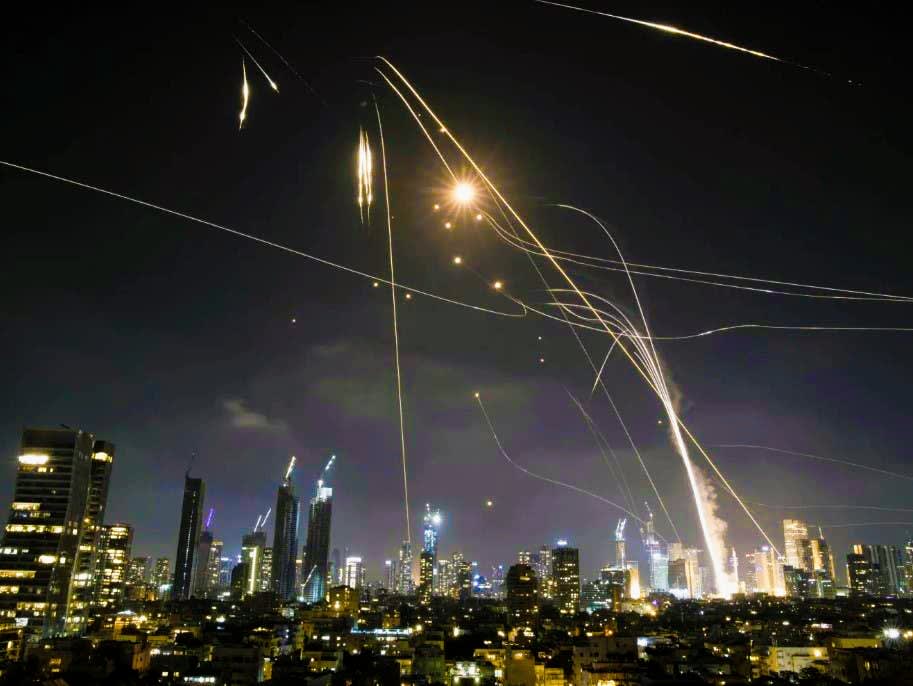In a dangerous escalation, the second day of clashes between Israel and Iran witnessed intense aerial attacks, with Israel carrying out its largest airstrike in history against targets inside Iranian territory in an attempt to prevent Tehran from developing its military nuclear program.
Iran retaliated by launching five waves of missiles at Israeli cities, resulting in three deaths and over 90 injuries.
Sirens sounded in Tel Aviv and Jerusalem, prompting residents to flee to shelters, while the Israeli army announced the activation of air defense systems to intercept dozens of missiles coming from Iran.
Iranian media confirmed targeting military sites in Zanjan and Hamadan in northern and western Iran, with reports of explosions in Tehran, where two missiles hit Mehrabad Airport, causing fires near key leadership sites and an important airbase.
In Israel, a high-rise building in central Tel Aviv suffered significant damage during missile strikes, a residential building in nearby Ramat Gan was destroyed, and the Iranian strikes resulted in two deaths and dozens of injuries, mostly minor, according to emergency services.
Meanwhile, Iranian Supreme Leader Ali Khamenei accused Israel of starting the war, with threats of comprehensive targeting inside Israeli territory.
An Iranian official confirmed that the death toll among Iranians has risen to 78, including military leaders, with over 320 civilians injured, holding the United States fully responsible for the attacks.
The Israeli delegate to the United Nations described the operation as a necessary step to maintain national security, pointing out that Iran was on the verge of producing enough fissile material to make several nuclear bombs.
At the same time, U.S. President Donald Trump stated that Tehran still has a chance to de-escalate through negotiations regarding its nuclear program, despite Iran's rejection of the latest U.S. offer.
This escalation comes amid international concerns of the region sliding into a broader regional war, although Israel has managed to reduce the capabilities of Iran's allies in Gaza and Lebanon in recent times.
The International Atomic Energy Agency closely monitors the damage to nuclear facilities in Iran such as Natanz, Fordow, and Isfahan, amidst confirmations that Iran's nuclear program remains a subject of wide international debate.

